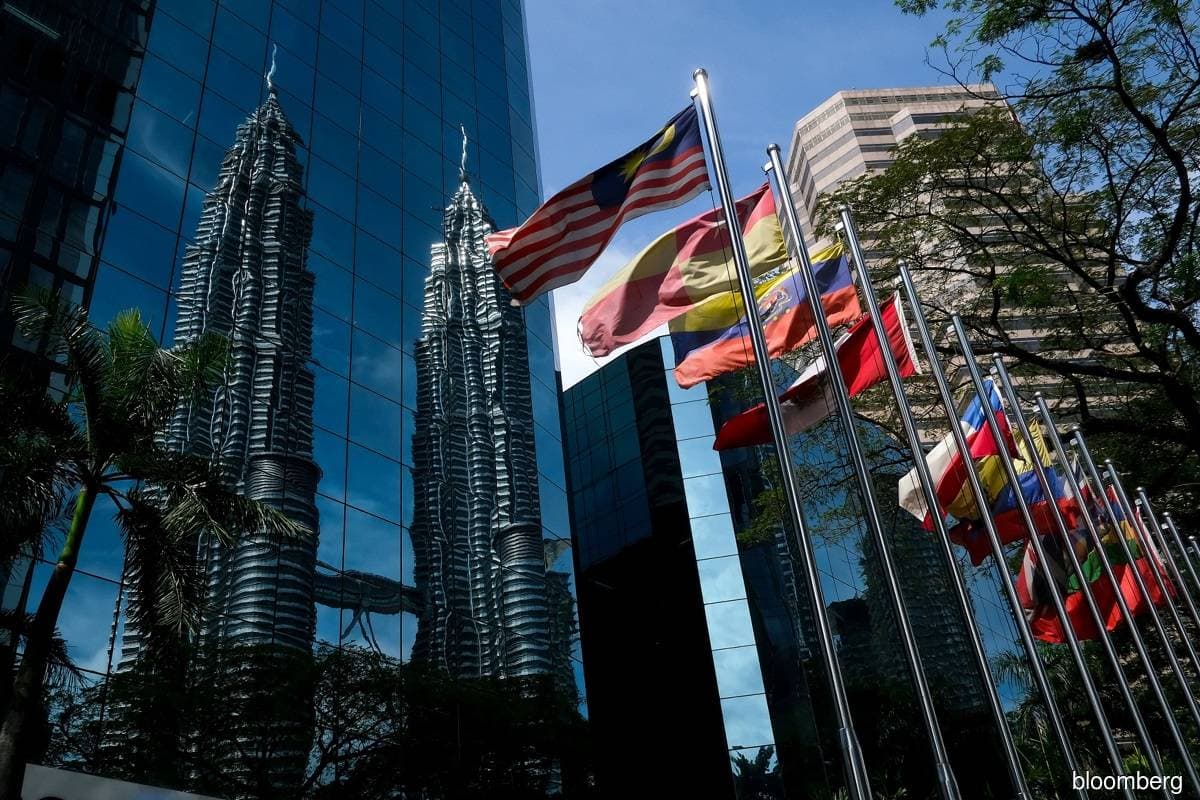
KUALA LUMPUR (Nov 21): The outcome of the 15th general election (GE15) has cast uncertainties over the timing of the re-tabling of Budget 2023 but cash transfers and gradual fiscal consolidation will remain on the agenda, whichever combination of political parties ends up taking Putrajaya, economists at RHB Research said.
"Regardless of the outcome, 'people-oriented' measures and gradual fiscal consolidation would remain top priorities for the new government. Cash transfers and other types of assistance to lower- and middle-income households are likely to be continued," they wrote in a note dated Nov 20 that mentioned Budget 2023, which was announced on Oct 7 but not passed before the dissolution of Parliament on Oct 10 to make way for GE15 that saw no party winning simple majority on Nov 19.
"The timeline for the re-tabling of Budget 2023, which ideally should be presented by December 2022, is uncertain following the possible changes in the ruling coalition and would very much depend on the timing of the Cabinet formation. Based on the latest developments, the balance of the risks is tilted towards a delay in Budget re-tabling following the election of a new government," they wrote, adding that "there will be a period of uncertainty until a coalition government is formed".
"We remain watchful on the potential candidate for the future finance minister," they added, noting that caretaker Finance Minister Tengku Datuk Seri Zafrul Abdul Aziz did not manage to win the Parliament seat for Kuala Selangor after contesting for the first time under the Barisan Nasional (BN) flag.
Tengku Zafrul was appointed as finance minister in Tan Sri Muhyiddin Yassin's Cabinet in March 2020 after being made a senator and continued in the same position when Datuk Seri Ismail Sabri Yaakob took over as prime minister in August 2021. Senators, whose tenure is not affected by the dissolution of Parliament, are appointed in three-year terms for a maximum of two terms in Malaysia.
"A wait-and-see attitude among economic agents and financial market participants is likely in the near term until a new government is formed. While this is the first time a 'hung Parliament' has come out of 15 general elections, we view that it might not be the last time that no coalition wins a simple majority, as the Malaysian political landscape transitions from the old two coalitions to a multi-coalition format," the economists wrote.
Political parties and coalitions have been instructed to submit by 2pm on Monday (Nov 21) the combination of political parties that can form the next government, including their candidates for prime minister. On Monday, the deadline was extended to 2pm on Tuesday.
In GE15, Pakatan Harapan won 82 seats, Perikatan Nasional won 73, BN secured 30, Gabungan Parti Sarawak won 22, Gabungan Rakyat Sabah won six, Parti Warisan won three, Parti Kesejahteraan Demokratik Masyarakat won one, Parti Bangsa Malaysia won one and independent candidates won two.
"There are various possible [coalition] scenarios, and the final result would very much depend on the outcome of negotiations between the parties," the note read.
RHB continues to expect the ringgit to trade within the range of 4.60 to 4.70 against the US dollar in the fourth quarter this year and between 4.70 and 4.80 within the first half of 2023. "The recent significant decline in [US dollar-ringgit] was mainly driven by exporters selling [US dollars] and also thin liquidity in the foreign exchange market.
"Notwithstanding the uncertain outlook on the political front, Malaysia's economic fundamentals still remain quite robust heading into 2023. We maintain our 2022 GDP (gross domestic product) growth forecast of 7% year-on-year followed by 4.5% in 2023," the RHB economists added, noting the possibility of 2022 GDP growth coming in between 7.5% and 8.5% to beat its forecast.
RHB's 2023 GDP growth forecast of 4.5% is the midway of the 4% to 5% forecast by the Ministry of Finance when tabling Budget 2023 in early October before Parliament was dissolved to make way for the GE15 that took place on Nov 19.
"One key area to monitor is the allocation of development expenditure in Budget 2023. To recap, the development expenditure allocated is at a record high of RM95 billion amid higher allocation for the 12th Malaysia Plan programmes and projects as well as [1Malaysia Development Bhd-related] bond redemption of US$3 billion (RM13.66 billion)," the economists wrote, noting that the transport sub-sector accounts for the largest share at 17.3% of total development expenditure through major infrastructure projects, namely the Pan Borneo Highway, the Gemas-Johor Bahru Electrified Double Track project, East Coast Rail Link (ECRL), RTS Link and Central Spine Road.
"Regardless of the final outcomes, we view that some of the large-scale transport-related projects are likely to be continued, [which are] ECRL, LRT3 (Light Rail Transit 3) and RTS Link. We also note that the long-delayed MRT3 (Mass Rapid Transit 3) project tenders had gone out on Oct 31, with a closing date on Nov 16 being put in place and awards taking place thereafter," they added.